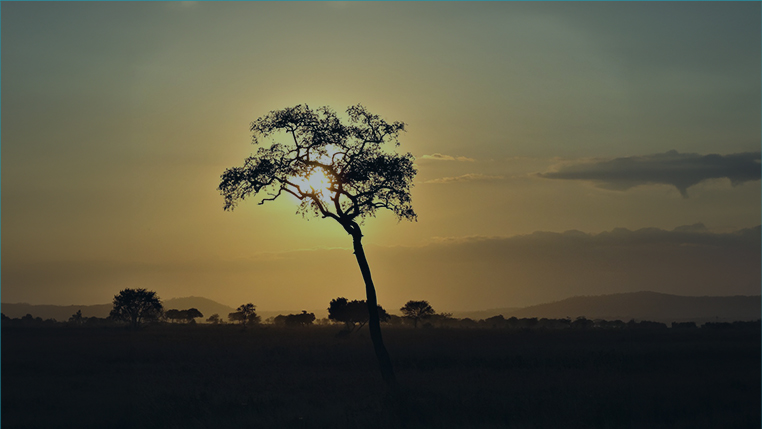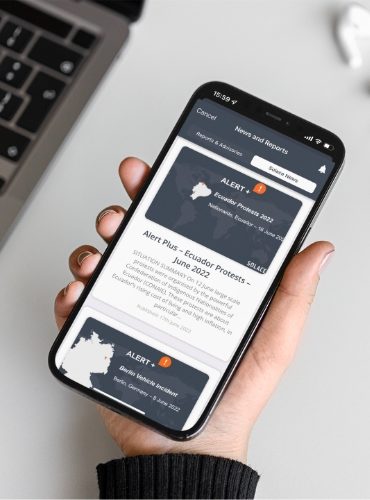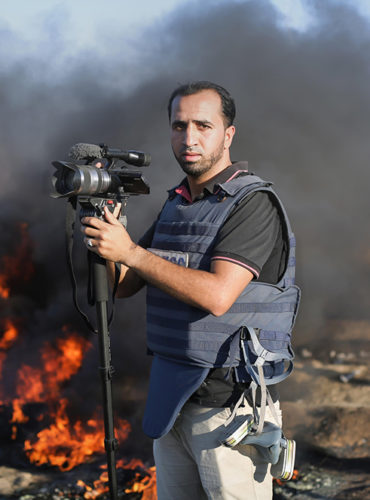Evacuations from High-Risk Locations Call +44 (0)1202 308810 or Contact Us →
Tribal, Religious, and Economic Conflict in Northern Nigeria

Key Points
- Clashes between armed nomadic groups and settled farmers have increased exponentially since 2015.
- Ethnic differences between national elites are blamed for impeding a meaningful response.
- Both groups are naturally resistant to any change of the status quo and their traditional lifestyles, despite enormous pressures from a booming population and resource scarcity.
Situational Summary
Civil Unrest
Nigeria is a country of 180 million people, containing at least 200 separate ethnic groups, with significant differences in religion, culture, and lifestyle. A notable divide in the northern states is apparent in the difference between the settled agricultural population, and that of Fulani herdsmen; a nomadic, pastoralist group who are present across northern Nigeria and several neighbouring nations. These two groups have, in spite of recent tensions and propaganda, been largely collaborative for at least the last 500 years; traditional migration patterns moved the herders across arable land where they would eat agricultural surplus or waste, and in turn fertilise soils for the next crop.
These groups have always experienced tensions in their efforts to coexist. However, since 2015, a near exponential increase in reported violence has occurred, with Fulani tribesmen apparently responsible for extensive raids upon villages in 22 of Nigeria’s 26 states. The victims of their attacks have typically been unarmed civilians, and the death toll from such raids has exceeded that inflicted by Boko Haram in the same period. Government efforts to resolve the crisis appear to have had limited effect, leading to political tensions between them and a people looking to them for security.
About Solace Global
Solace Global is a leading international risk management company specialising in providing comprehensive security solutions for businesses, organisations, and individuals operating in complex and high-risk environments. With a global presence and a team of experienced security professionals, Solace Global offers a range of services, including risk assessments, crisis management, travel security, and intelligence analysis.
Solace Global Comment
Population
Nigeria’s population is booming and on track to supersede the United States as the third most populous nation by 2050. This rapid growth has affected both the nomadic and settled populations, leading to larger tribes with more livestock moving into areas with more and larger villages, surrounded by larger tracts of farmland. This explosion has not been matched by an increase in agricultural efficiency or yields, resulting in greatly increased competition for a finite array of resources, and an increase in tensions in proportion to this.
Climate
Aggravating the issues of resource scarcity and rising populations is the reality of climate change. The Sahel, a semi-arid region south of the Sahara desert, is undergoing desertification at a tremendous rate, with lands previously suitable for grazing rapidly becoming unsustainable. In the case of Bauchi, Kano, and Sokoto states, between 50 and 75 per cent of land is recognised as undergoing this process. It will take decades to reverse this trend, even if the climate was to be stabilised. This, in turn, has limited the northern-most reaches for the Fulani’s range and forced them to move further south year-on-year. As before, the result of this is an increase in violence and tensions as the populations of these regions, unused to the Fulani’s movements, are often more resistant than those further north, where their intermittent presence was simply a fact of life.
These climatological factors have also impacted the settled populations. The increasingly arid environment is ever less suitable for farming, reducing their ability to sustain themselves and forcing them to also migrate further south. As a result, the regions only recently experiencing the presence of the Fulani, are also exposed to an increase in migration from these groups, further compounding the issues associated with land and resource scarcity.
Small Arms Proliferation
The above issues would likely lead to violent clashes regardless of additional factors, however, the impact has been substantially magnified by the easy and widespread availability of modern firearms. With the provision of law enforcement often distant, and immensely impractical for a transient population, Nigerians of all groups have frequently relied upon weapons of some sort to protect their herds or crops from potential interlopers. As such, intermittent skirmishes between farmers and herdsmen are not a new development, however, the scale of the recent bloodshed marks a notable escalation.
While it is common to see images of local village defence groups or anti-extremist vigilantes in Borno state clutching a collection of obsolete hunting weapons, it is equally common to see images of young Fulani carrying modern, late-20th century, magazine fed, infantry rifles. Whilst training and experience with these weapons is limited, the immediate benefit of fire supremacy has often given them the upper hand in many clashes with local civilians. Non-governmental organisations tracking weapon proliferation have indicated that the source of these weapons were Libyan stockpiles, raided during that country’s civil war, and sold south through porous borders to fund the Libyan conflict.
The Fulani managed to gain earlier access to these supplies due to their nomadic migration patterns increasing their exposure to other tribal groups trafficking the weapons. However, as time has passed, similar weapons are becoming increasingly available to Nigeria’s northern farmers with which to defend themselves. Without effective efforts to resolve the wider issues, there is a real possibility of this proliferation leading to a small-arms race, with villagers and nomadic groups each trying to ensure their security through superior firepower.
Ethnic Tensions and Government
Many elements of the Nigerian population have expressed significant displeasure at the government’s apparently limited response to the herding issue. This is despite expending significant resources in the fight against the Boko Haram insurgency and cracking down rigorously on unrest in the south-east (both of which are arguably responsible for less violence and disruption). The reality of this is that it is likely that the underlying structural problems regarding the herdsmen are more substantial than the other issues – voluntary membership of Boko Haram, by default, makes a person a terrorist, being born a Fulani does not automatically make one a bandit or raider. As such, a direct military response to the presence of a Boko Haram cell is proportionate, whereas responding similarly to every group of nomadic herdsmen is both disproportionate and, due to their numbers, impossible.
Despite a potentially rational explanation, political opponents of the government have openly opted to explain the issue with more divisive, racial, and ethnic undertones. Accusations have been made that senior government members, known to be of northern Fulani origin, are actively preventing solutions to the problem, either as an act of ethnic solidarity or due to their direct employment of the armed herdsmen to defend their own herds. Whilst a refusal to simply impose a solution on the region may be partly due to some official’s origin, this theory grossly overestimates the state’s ability to impose such a hypothetical, even if a will for it existed.
Religious Divide
The divide between northern and southern Nigerian populations is not simply cultural but has also been reinforced by differences in religion. The northern population, including the Fulani, predominantly adhere to the Islamic faith, whilst Christianity dominates the south. This religious difference has fuelled a wider sense of division and exacerbated the issue when Muslim Fulani venture south into Christian regions unused to them. In northern Nigeria, the differences in lifestyle between pastoralist and agricultural groups were somewhat compensated for by common religious themes. These are absent in the south, making it easier for each group to view their rivals for land and resources as “the other” rather than fellow members of Christendom or the Muslim Ummah.
Potential Solutions?
The situation is likely to resist all efforts at a military or law enforcement led solution, and is instead likely to require long-term and persistent effort to generate social and economic change. Efforts to significantly enhance the agricultural practices of Nigerian farmers would significantly reduce land pressures. The establishment of formalised herding areas or ranches would permit the continuation of pastoral care whilst minimising the frictions with other inhabitants. Improved provision of law enforcement would minimise citizens’ dependence on personal firearms for their security. However, all these issues would be dependent on the voluntary commitment of the populations involved, overcoming the inertia of tradition to significantly change their lifestyles. Securing these commitments would require the state and private enterprise to offer an attractive, flexible, and viable alternative to the present situation.
Security advice
Travellers should remain aware of ongoing religious, ethnic, and tribal tensions throughout Nigeria, with particular emphasis on the threat of near-spontaneous violence in rural areas. Such violence is typically due to tensions over resources, and travellers are therefore less likely to be targeted. However, armed nomadic groups may resort to armed robbery and banditry where relatively wealthy foreigners represent high-payoff targets.
If caught in the vicinity of a shooting or firearms incident, travellers are advised to RUN, HIDE, TELL, FIGHT, TREAT.
RUN If in a location where gunfire or explosions are heard, leave the area or building by any safe and available exit immediately.
HIDE If unable to run away, find suitable cover or barricade yourself in a room. Remember to silence your phone and turn vibrate off.
TELL Inform emergency services or alert someone who is able to do it for you. Once police arrive, comply with their instructions and do not make any sudden movements.
FIGHT As a last resort, if confronted with a gunman, it is recommended to fight back by using the element of surprise by shouting, screaming and running fast at the attacker. If sheltered with others, convince them to do the same and rush the attacker all at once. Ensure the person entering the shelter is the attacker and not law enforcement.
TREAT For potentially fatal wounds, the earlier a victim is treated, increases the likelihood they will survive the incident. This is likely to be difficult manage; those responding to an attack generally prioritise eliminating the threat over provision of aid, and the availability of emergency medical care in rural Nigeria is limited at best.
Robust journey management and security measures should be implemented for all travel in Nigeria. In addition to armed police escorts, the employment of a close protection officer and security driver will provide increased knowledge of local trends and atmospherics, significantly mitigating the risk to travellers.
All travel should be supported by the use of travel tracking and intelligence software, such as Solace Secure, in order to enhance traveller awareness of their security environment, and permit employers to implement effective duty of care.
Solace Global: Your Trusted Partner for Secure Business Travel
At Solace Global, we understand that the well-being of your employees is paramount, especially when it comes to business travel. Our intelligence-driven approach allows us to identify potential threats and vulnerabilities, empowering your organisation to proactively navigate complex environments.
Global Intelligence
Arm yourself with the knowledge to avoid a potential threat from turning into a crisis. Intelligence advisories give you tailored reports to anticipate possible disruptions, mitigate risk and help you make well-informed decisions, faster.

High Risk Location Security
We manage the full security lifecycle, from initial security strategy, protection on-the-ground and ongoing overwatch, with advanced risk management software to support compliance and reporting.

Integrated Solutions
Recognising the unique needs of your organisation, our solutions are customised to ensure optimal protection.
